★★★
“Hate trumps love.”
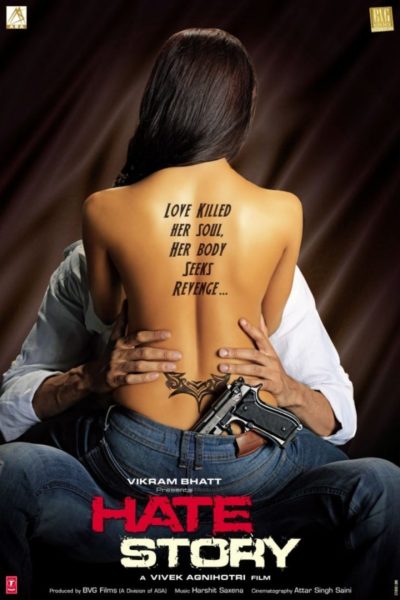 After exposing construction company Cementec as involved in corruption, journalist Kavya Krishna (Dam) is surprised to get a call from Siddharth Dhanrajgir (Devaiya), son of the company’s owner. He ends up offering her a job at far above her previous salary, and the two eventually grow into a relationship. However, it’s all a ruse: Siddharth dumps and firing Kayva, saying, “I fuck those who fuck with me.” When she tries to strike back by telling him she’s pregnant, he has her kidnapped and forced to have an abortion, which leaves Kavya permanently unable to have children. She vows to destroy Siddharth and his company, by any means necessary, using her investigative skills – and no shortage of feminine wiles – to get the information required.
After exposing construction company Cementec as involved in corruption, journalist Kavya Krishna (Dam) is surprised to get a call from Siddharth Dhanrajgir (Devaiya), son of the company’s owner. He ends up offering her a job at far above her previous salary, and the two eventually grow into a relationship. However, it’s all a ruse: Siddharth dumps and firing Kayva, saying, “I fuck those who fuck with me.” When she tries to strike back by telling him she’s pregnant, he has her kidnapped and forced to have an abortion, which leaves Kavya permanently unable to have children. She vows to destroy Siddharth and his company, by any means necessary, using her investigative skills – and no shortage of feminine wiles – to get the information required.
An enjoyable pot-boiler, this has some of the traditional aspects of Bollywood cinema, not least a lengthy running-time of 139 minutes. It is, likely fortunately, light on the musical numbers; though the songs clearly play a significant part, there’s only one scene in a night-club which comes close to what you’d expect from Indian cinema. It’s also an odd mix, which I can best describe as “chaste raunchiness”. This is a film, after all, about a woman prepared to go to absolutely any length for vengeance, crammed chock full of sexual situations… Yet the movie contains no nudity beyond the PG-13 level, and not so much as a kiss. Even Siddharth’s trademark line, frequently repeated in English, is far more politely (and inaccurately!) rendered in the subtitles as “I ruin the people who mess with me.”
I largely tracked this down, because I saw that Hate Story 2 was on Netflix at the time, and not the original. I feel it’s perhaps the kind of story which would be better served by a Western remake, which wouldn’t have to abide by the strict censorship rules of India. [I’m reminded there is apparently a Bollywood version of Basic Instinct, which I can only imagine!] There may not be anything quite like the poster present in the film, and some of the plot contrivances are, frankly, incredible. For instance, Kayva ends up on the board of Cementec, a position obtained almost solely by making doe-eyes at a cabinet minister for an extended period.
However, it’s still a thoroughly satisfying tale of a woman, abused by a powerful man, turning to strike back at him; a tale of sexual harassment and its reversal like has more resonance now, than when released in 2012. Dam cuts a striking figure, and I thoroughly enjoyed the scheming interplay between Kayva and Siddharth. For example, he sends his investigator to bug her house, only for her to find the audio-visual devices and use them to send disinformation back at him. Then he releases the steamy tapes to the media, framing her for the murder of her lover. I was impressed with the ending, too – it’s moral and grim at the same time. Despite the extended duration, the time sped by: while the sequel is no longer on Netflix, you should still expect a review, sooner rather than later.
Dir: Vivek Agnihotri
Star: Paoli Dam, Gulshan Devaiya, Nikhil Dwivedi, Joy Sengupta





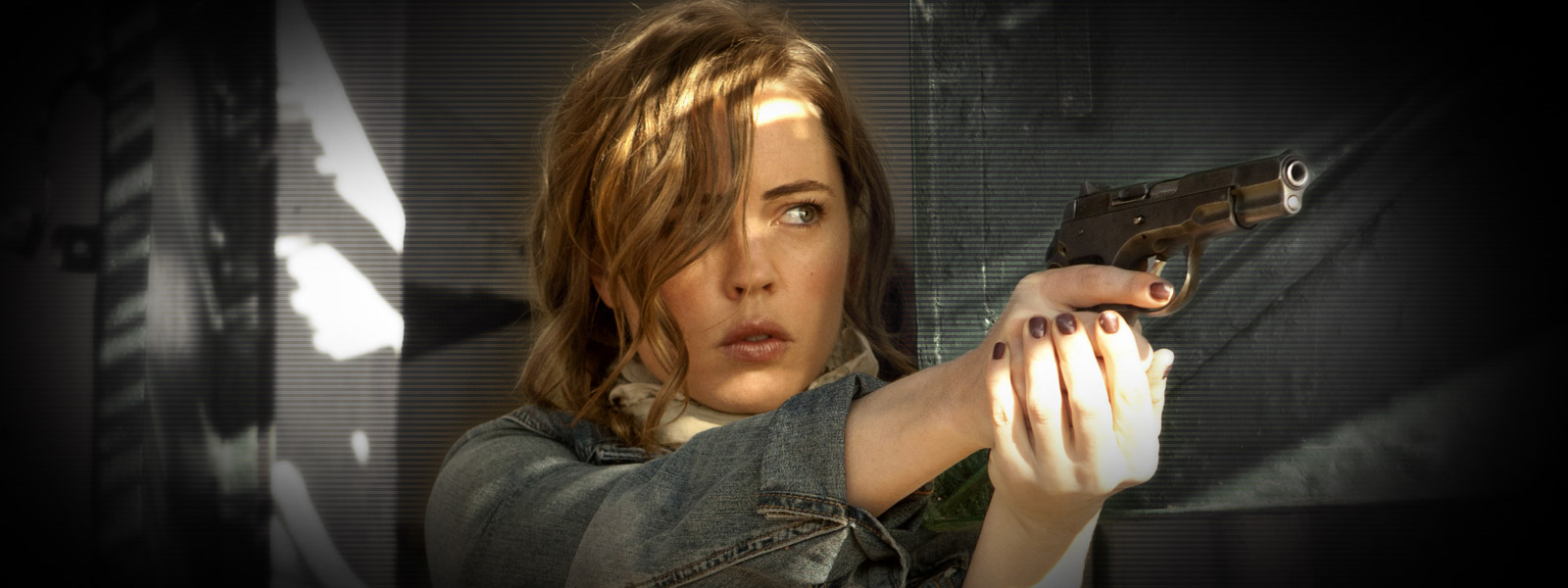 ★★★
★★★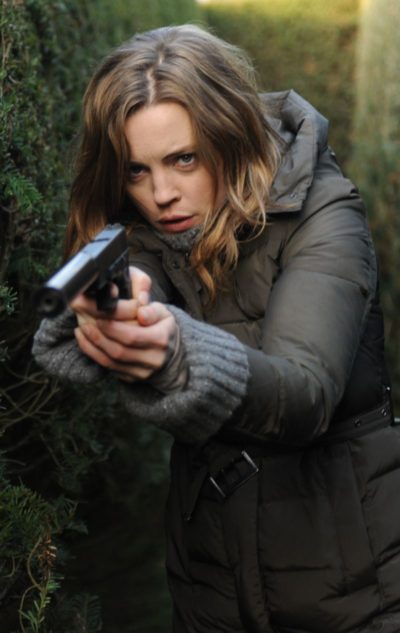 Originally pitched as a vehicle for Gillian Anderson – creator Spotnitz was a head writer on The X-Files – the main problem here is likely a structure which demands a second season the show never received. This seems to have come as a surprise to the creators, since they had put together a writing team and planned out storylines. Then, the show was abruptly not renewed, in response to sagging British ratings (the series lost 30% of its viewers over the eight-week run). Even after the BBC pulled the plug, there were hopes Cinemax would continue the show, as it had sustained its audience much better in the US. Those failed to come to fruition either, and the story of Sam Hunter is left frustratingly incomplete.
Originally pitched as a vehicle for Gillian Anderson – creator Spotnitz was a head writer on The X-Files – the main problem here is likely a structure which demands a second season the show never received. This seems to have come as a surprise to the creators, since they had put together a writing team and planned out storylines. Then, the show was abruptly not renewed, in response to sagging British ratings (the series lost 30% of its viewers over the eight-week run). Even after the BBC pulled the plug, there were hopes Cinemax would continue the show, as it had sustained its audience much better in the US. Those failed to come to fruition either, and the story of Sam Hunter is left frustratingly incomplete.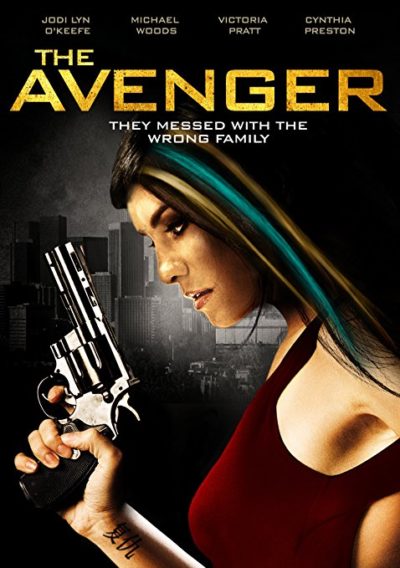 Teetering on the edge of qualifying as false information, this TVM was originally released under the more relevant, yet great deal less salacious (and, let’s be honest, less appealing) title of A Nanny’s Revenge, along with a greatly subdued sleeve. Marketing works, people: for put it this way, I’d never have watched it in that presentation. I can’t feel
Teetering on the edge of qualifying as false information, this TVM was originally released under the more relevant, yet great deal less salacious (and, let’s be honest, less appealing) title of A Nanny’s Revenge, along with a greatly subdued sleeve. Marketing works, people: for put it this way, I’d never have watched it in that presentation. I can’t feel 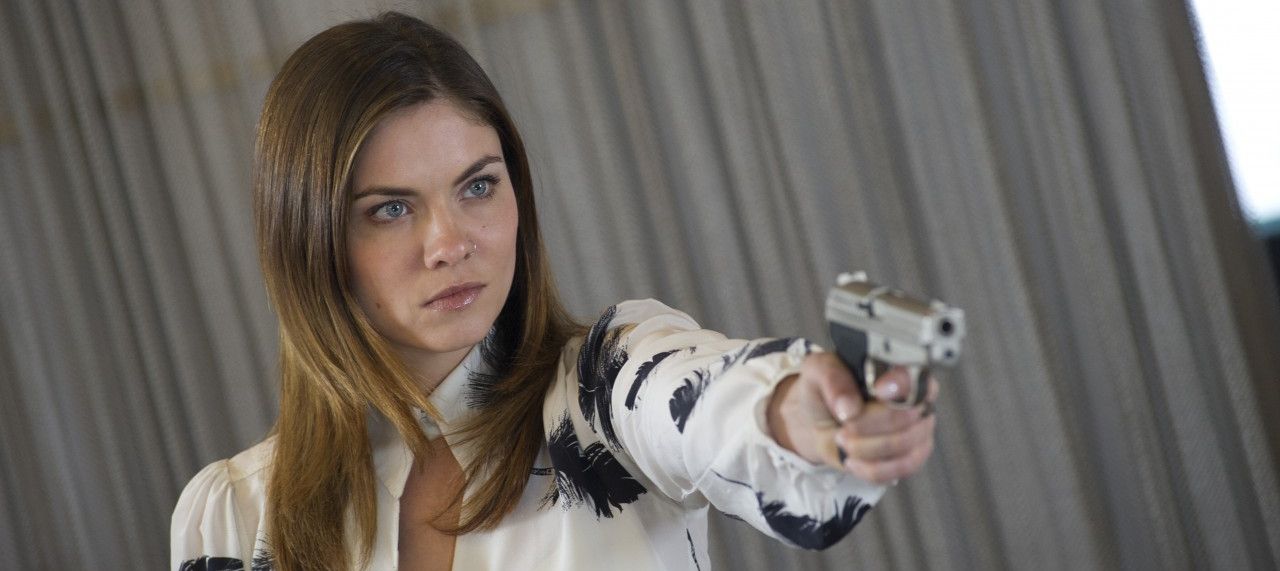
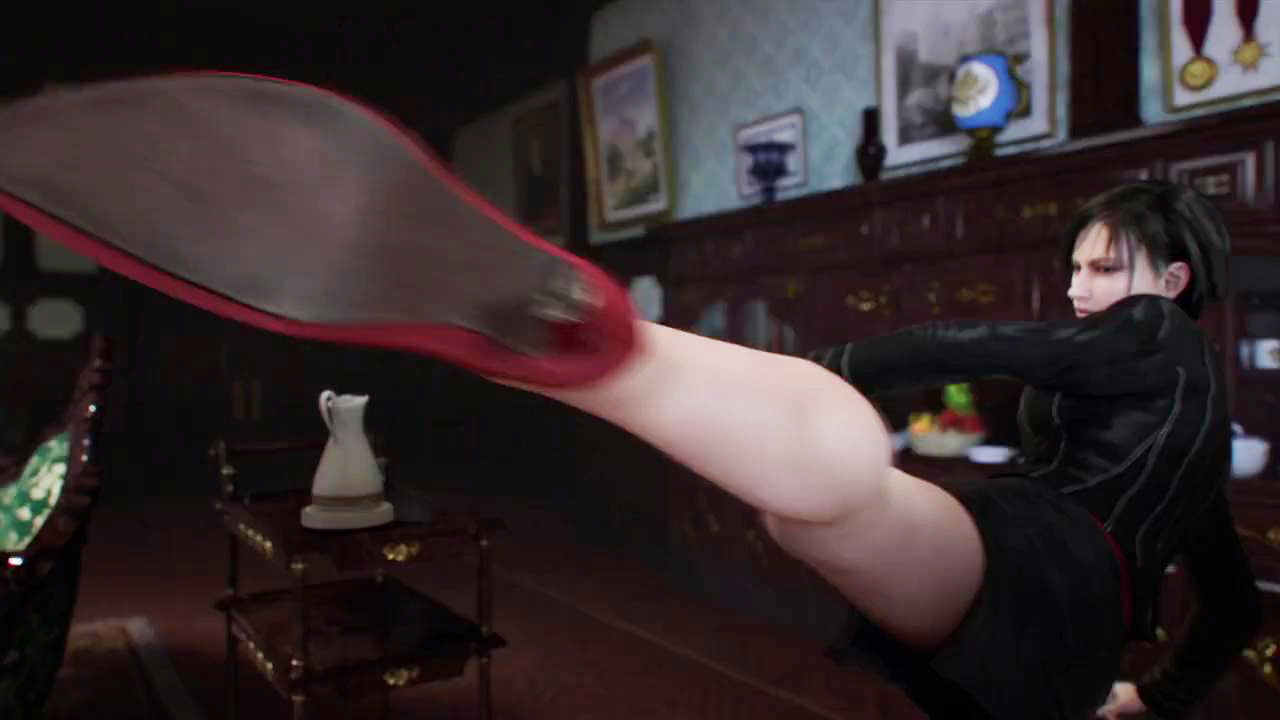 The Milla Jovovich series are not the only films set in the Resident Evil universe. There have also been two feature-length computer animated movies: Degeneration was released in 2008, and Damnation four years later. A third, Vendetta, is scheduled to be released in Japan this spring. While made in Japan, with a Japanese director and crew, the voice cast are English-speaking. As with the novels, the stories and characters are in line with the universe of the computer games, rather than the live-action features, and tend to occupy spots in the timeline between the entries in the game series. Therefore, there’s no Alice, but the animated films contain their fair share of strong heroines and, of course, action.
The Milla Jovovich series are not the only films set in the Resident Evil universe. There have also been two feature-length computer animated movies: Degeneration was released in 2008, and Damnation four years later. A third, Vendetta, is scheduled to be released in Japan this spring. While made in Japan, with a Japanese director and crew, the voice cast are English-speaking. As with the novels, the stories and characters are in line with the universe of the computer games, rather than the live-action features, and tend to occupy spots in the timeline between the entries in the game series. Therefore, there’s no Alice, but the animated films contain their fair share of strong heroines and, of course, action.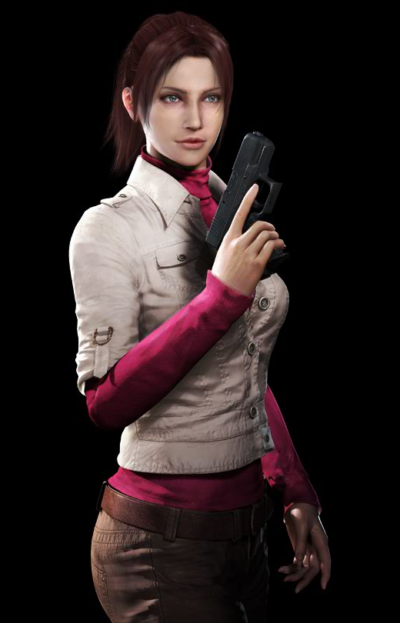 There’s a new EvilCorp in town, and its name is WilPharma, as we learn during the montage of news stories which opens this. In game terms, the film takes place after the events of “Resident Evil 4”, which saw the dismantling of the Umbrella Corporation. Its assets and research naturally proved too valuable to destroy, and WilPharma has taken over, with the announced goal of developing a vaccine for the troublesome T-virus. However, some dubious medical research in India leads to the company being targeted by protestors from TerraSave. It’s one such demo, at the Harvardville Airport, that kicks things off, as a plane of infected subjects crashes into the terminal, where Senator Davis is trying to avoid the protestors. TerraSave’s Claire Redfield (Court) finds herself trapped with the Senator, before they’re rescued by a team of soldiers including Angela Miller (Bailey) and Leon S. Kennedy (Mercier).
There’s a new EvilCorp in town, and its name is WilPharma, as we learn during the montage of news stories which opens this. In game terms, the film takes place after the events of “Resident Evil 4”, which saw the dismantling of the Umbrella Corporation. Its assets and research naturally proved too valuable to destroy, and WilPharma has taken over, with the announced goal of developing a vaccine for the troublesome T-virus. However, some dubious medical research in India leads to the company being targeted by protestors from TerraSave. It’s one such demo, at the Harvardville Airport, that kicks things off, as a plane of infected subjects crashes into the terminal, where Senator Davis is trying to avoid the protestors. TerraSave’s Claire Redfield (Court) finds herself trapped with the Senator, before they’re rescued by a team of soldiers including Angela Miller (Bailey) and Leon S. Kennedy (Mercier).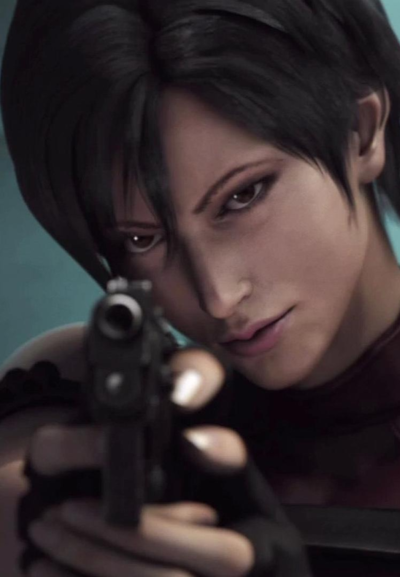 Included here largely for completeness, since the action heroine content likely would fall a little short of qualification on its own. Not that it’s entirely lacking, as the video at the bottom shows. But it’s definitely more a vehicle for Leon S. Kennedy (Mercer/Dorman). Which brings me to one of the odd things here: that is not a typo, it’s a double-credit for the character, because two different actors played the role, one providing the voice, the other the source for the motion-captured animation. Not sure I’ve seen that before.
Included here largely for completeness, since the action heroine content likely would fall a little short of qualification on its own. Not that it’s entirely lacking, as the video at the bottom shows. But it’s definitely more a vehicle for Leon S. Kennedy (Mercer/Dorman). Which brings me to one of the odd things here: that is not a typo, it’s a double-credit for the character, because two different actors played the role, one providing the voice, the other the source for the motion-captured animation. Not sure I’ve seen that before. If you’re familiar with Jackie Chan’s life story, you’ll know he (along with fellow future start Sammo Hung and Yuen Biao) was basically brought up in a Peking Opera school, where he learned martial arts and acrobatics as well as theatrical skills. Discipline there was notoriously strict – the film Painted Faces gives a good idea of what it was like. But that was the sixties. Surely no such abusive educational regime exists nowadays?
If you’re familiar with Jackie Chan’s life story, you’ll know he (along with fellow future start Sammo Hung and Yuen Biao) was basically brought up in a Peking Opera school, where he learned martial arts and acrobatics as well as theatrical skills. Discipline there was notoriously strict – the film Painted Faces gives a good idea of what it was like. But that was the sixties. Surely no such abusive educational regime exists nowadays?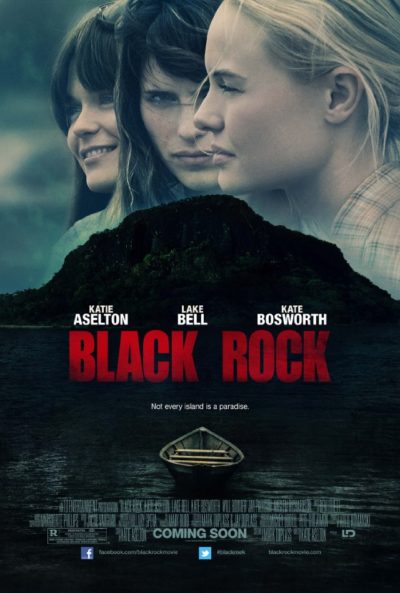 Maybe I’m getting old and deaf. Or maybe it’s just not a good idea to have dialogue that appears to consist largely of characters yelling (or whispering) over the top of each other. Either way, probably a negative the muddy audio is the main thing I remember about this survival horror film. Childhood friends Sarah (Bosworth), Abby (Aselton) and Lou (Bell) re-unite for a weekend on an island near where they grew up. There’s some reluctance here, Abby and Lou not having been on speaking terms for some years, due to the latter having slept with the former’s boyfriend years previously. The island is supposedly deserted, so they’re surprised to encounter three men hunting there, one of whom is known to Lou. A drink leads to another, and before you know it, Abby has fended off advances, in lethal fashion. The two survivors don’t take kindly to this, and begin hunting the trio to take revenge for their friend.
Maybe I’m getting old and deaf. Or maybe it’s just not a good idea to have dialogue that appears to consist largely of characters yelling (or whispering) over the top of each other. Either way, probably a negative the muddy audio is the main thing I remember about this survival horror film. Childhood friends Sarah (Bosworth), Abby (Aselton) and Lou (Bell) re-unite for a weekend on an island near where they grew up. There’s some reluctance here, Abby and Lou not having been on speaking terms for some years, due to the latter having slept with the former’s boyfriend years previously. The island is supposedly deserted, so they’re surprised to encounter three men hunting there, one of whom is known to Lou. A drink leads to another, and before you know it, Abby has fended off advances, in lethal fashion. The two survivors don’t take kindly to this, and begin hunting the trio to take revenge for their friend.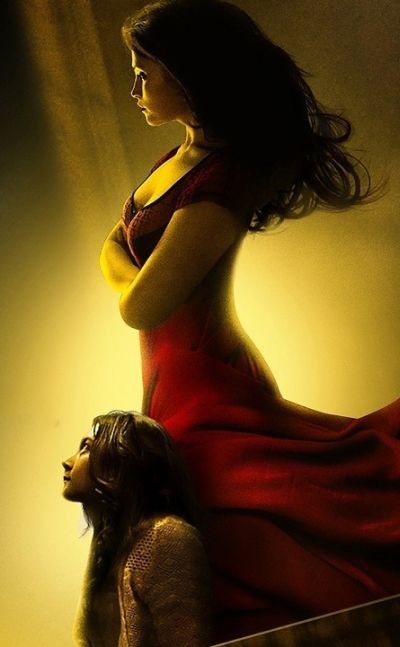 Ok, that’s probably not strictly accurate, but there is more than a hint of it, in the way this manages to combine period drama with Gothic horror trappings – while also depicting the same characters in the present day. This slipping back and forth in time is somewhat distracting, and there are points where you wish they had just picked an era and stuck with it. The heroines here are a pair of mother and daughter vampires (Arterton and Ronan), who have been more or less on the run for about two centuries. For the mother, Clara, was a terminally-ill prostitute who stole the secret of vampirism from her client, Captain Ruthven (Jonny Lee Miller) in the early 19th century. She not only became immortal herself, she turned her daughter, Eleanor – an act strictly against the tenets of The Brethren, who are kinda like the vampire union, who put out a death-warrant on the pair. In the present day, this means Clara – still turning tricks to provide for Eleanor – has occasionally to decapitate people with a garrotte, should they turn out to be hunters sent by The Brethren.
Ok, that’s probably not strictly accurate, but there is more than a hint of it, in the way this manages to combine period drama with Gothic horror trappings – while also depicting the same characters in the present day. This slipping back and forth in time is somewhat distracting, and there are points where you wish they had just picked an era and stuck with it. The heroines here are a pair of mother and daughter vampires (Arterton and Ronan), who have been more or less on the run for about two centuries. For the mother, Clara, was a terminally-ill prostitute who stole the secret of vampirism from her client, Captain Ruthven (Jonny Lee Miller) in the early 19th century. She not only became immortal herself, she turned her daughter, Eleanor – an act strictly against the tenets of The Brethren, who are kinda like the vampire union, who put out a death-warrant on the pair. In the present day, this means Clara – still turning tricks to provide for Eleanor – has occasionally to decapitate people with a garrotte, should they turn out to be hunters sent by The Brethren.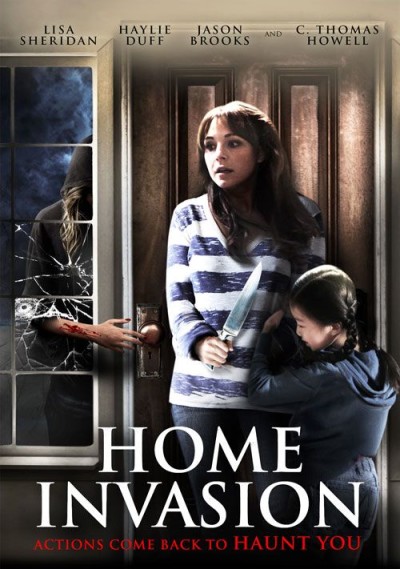 Nicole Johnson (Sheridan) comes home with her daughter to find a robbery in progress, but is a well-armed home-owner and ends up blowing away one of the intruders. The other, Ray (Howell), bails with their getaway driver, Jade (Duff), who was also the dead perp’s girlfriend. She vows to take vengeance on Nicole and her family, in a variety of forms, from posing as a swimming teacher, to poisoning the customers at Nicole’s restaurant, then setting the place on fire and framing her for arson. Plus, of course, she’s a believer in the old Biblical law of an eye for an eye – or, in this case, a boyfriend for a boyfriend, Jade fixing to inject her nemesis’s other half with that old “undetectable poison”, potassium chloride. I have probably just got myself on a government watch-list by Googling that. Should have done it on my boss’s computer. Oh, well….
Nicole Johnson (Sheridan) comes home with her daughter to find a robbery in progress, but is a well-armed home-owner and ends up blowing away one of the intruders. The other, Ray (Howell), bails with their getaway driver, Jade (Duff), who was also the dead perp’s girlfriend. She vows to take vengeance on Nicole and her family, in a variety of forms, from posing as a swimming teacher, to poisoning the customers at Nicole’s restaurant, then setting the place on fire and framing her for arson. Plus, of course, she’s a believer in the old Biblical law of an eye for an eye – or, in this case, a boyfriend for a boyfriend, Jade fixing to inject her nemesis’s other half with that old “undetectable poison”, potassium chloride. I have probably just got myself on a government watch-list by Googling that. Should have done it on my boss’s computer. Oh, well….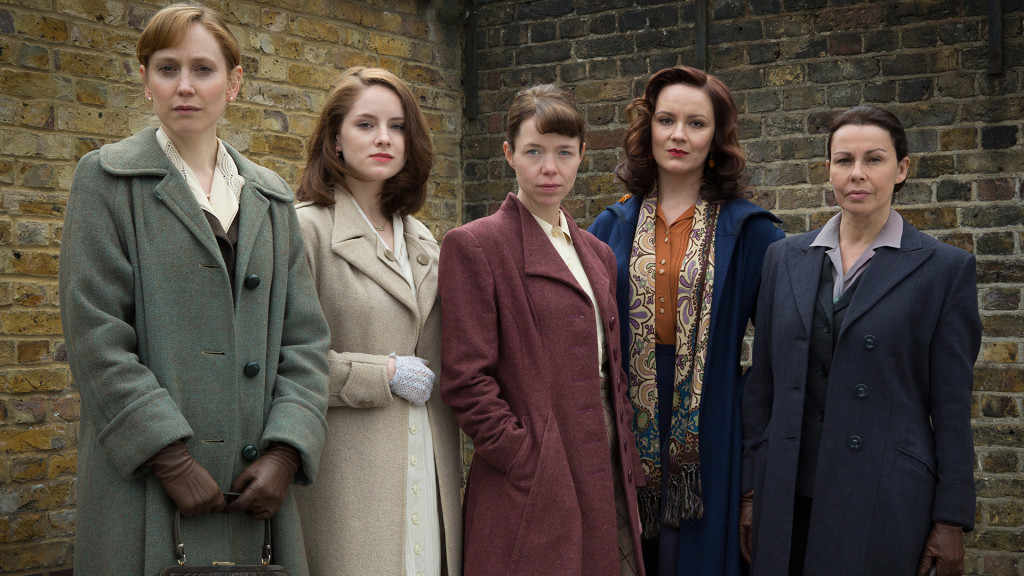
 Set in the early 1950’s, this was a brief – seven episodes over two seasons – but very effective TV series, with heroines who used brains, rather than brawn, to solve crimes which the authorities are either unable or unwilling to address. The origins of the group were during World War II, when their analytical skills were put to vital use, cracking German communications, out of the then-secret Bletchley Park base. But after the war, the women returned to normal lives; Susan Gray (Martin) is now married, a mother of two, and uses her talents for nothing more taxing than crosswords. But she is intrigued by a series of serial murders, and detects an apparent pattern in them. When her attempts to through official channels are met with little more than a pat on the head and a suggestion to return to the kitchen, she contacts her colleagues from Bletchley, who begin gathering and analyzing information on their own. This makes use of the skills each has: for instance, Jean (Graham) works as a librarian, while Lucy (Rundle) has a photographic memory, and asks as the group’s computer database.
Set in the early 1950’s, this was a brief – seven episodes over two seasons – but very effective TV series, with heroines who used brains, rather than brawn, to solve crimes which the authorities are either unable or unwilling to address. The origins of the group were during World War II, when their analytical skills were put to vital use, cracking German communications, out of the then-secret Bletchley Park base. But after the war, the women returned to normal lives; Susan Gray (Martin) is now married, a mother of two, and uses her talents for nothing more taxing than crosswords. But she is intrigued by a series of serial murders, and detects an apparent pattern in them. When her attempts to through official channels are met with little more than a pat on the head and a suggestion to return to the kitchen, she contacts her colleagues from Bletchley, who begin gathering and analyzing information on their own. This makes use of the skills each has: for instance, Jean (Graham) works as a librarian, while Lucy (Rundle) has a photographic memory, and asks as the group’s computer database.